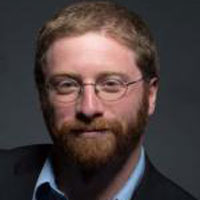Almost from the beginning, there have been rumblings of discontent about Pope Francis. While the world’s media fell in love with him, there were more conservative bishops who felt that Francis’s popular appeal came at the expense of carefully worked-out Church rituals and teachings. They saw Francis as chipping away at established Church teachings on sexuality, kowtowing to the liberal media, and acting aggressively towards conservative church leaders.
Criticism of Francis has come to a head with the publication of the final report of the Synod on the Family. Despite changing absolutely nothing doctrinally, the Synod’s recommendations for a more understanding attitude to those in unconventional family arrangements have ignited a firestorm of controversy among conservative commentators. The possibility that Catholics who had divorced and remarried without receiving an annulment might be readmitted into full communion with the Church has made many apoplectic.
Writing on his diocesan website, Bishop Thomas Tobin accused Francis of being fond of “making a mess” and stated that the Synod voting concept “struck [him] as being rather Protestant.” A funny argument, since Catholic bishops have been voting on key issues since the Council of Nicaea in 325, but that’s beside the point. Tobin seems to be suggesting that with Francis at the helm, the Catholic Church is no longer acting like the Catholic Church.
For over a year conservative Catholics have had their chastity belts in a twist over Francis and apparently, the chafing has finally grown too much to bear.
Over at The New York Times, columnist Ross Douthat, a convert to Roman Catholicism, warned that Francis’s current path could “eventually lead to real schism.” With the threat of schism hanging in the air he then encourages a kind of rebellion: “True Catholics,” he writes, must “resist” the Pope’s pressure to change the Church.
Other conservatives agree, pointing to Paul’s Letter to the Galatians, in which the upstart self-proclaimed Apostle Paul describes a meeting when he called out Peter—the first Pope—for hypocrisy. To his face and everything. According to Paul, Peter backed down. Now traditionalists want to use this as a precedent for calling out the Pope when he’s not Pope-y enough.
Proof-texting from scripture in order to criticize the Pope—now who’s being Protestant?
Conservative Cardinals seem to be getting in on the act. Last weekend Australian Cardinal George Pell unnecessarily reminded his congregants not only that Pope Francis is the 266th Pope, but also that “history has seen 37 false or antipopes.” Antipopes? Does Cardinal Pell intend to hint that Francis isn’t a true Pope? Was Cardinal Pell not there when Francis was elected?
But there’s a reason to pay attention to this particular breed of shrill complaint: there’s more than one Pope in town.
Much like an ex-partner you keep running into in the street, Pope Emeritus Benedict XVI’s continued presence in the church serves as a constant reminder of the way things used to be. Benedict’s occasional but thoroughly traditional statements offer a painful reminder and glimmer of hope to conservative Catholics. Just last week, in written remarks read aloud at the Pontifical Urbanian University in Rome, Benedict wrote that interreligious dialogue “is no substitute for spreading the Gospel to non-Christian cultures.” Benedict’s arguments are expressed somewhat philosophically, but they are music to the ears of those tired of Francis’s soft embrace of atheists, aliens, and—worst of all—progressive social policies.
Conservatives can also be encouraged that Benedict is showing support, albeit subtly, for the previously important conservative Cardinals that Francis ousted from power. Cardinal Raymond Burke, a pro-life traditional prelate whose demotion by Francis was recently announced, invited Benedict to a Latin Mass at the Vatican. In declining the invitation, Benedict wrote that he was glad that the Latin Mass was being “celebrated by great cardinals,” a statement that many conservatives see as tacit support for those sent into exile by Francis.
Benedict is hanging back for now, but there’s no doubt that he could easily become a figurehead for traditionalists harkening back to the good old days. In some ways, he already has. In somewhat ominous tones that have rightly been called threatening, Douthat exclaims to his “true Catholic” audience, “Remember there is another pope still living!” Having warned that Pope Francis and the Synod are leading us towards schism, does Douthat mean to imply that “true Catholics” will or should stage a coup?
It’s almost as if the Catholic Church was recently baptized in a vat of irony: so-called traditionalists—the same people who insisted that liberals fall in line behind John Paul II and Benedict XVI—are petulantly calling for schism and for bucking Church hierarchy. What makes it even more absurd: Francis isn’t all that liberal. He cares profoundly and deeply about the poor, but he rarely speaks about supporting women, holds the line on contraception and abortion, and is only selectively pro-environment. In keeping with official Church teaching he believes in the reality of evolution, and in keeping with official Church teaching he believes in the power of exorcism. The Pope is Catholic, go figure.
Traditionalists appear to be buying into the media spin about which they themselves complain. In doing so they are actually bolstering Francis’s lib credentials. Perhaps the hawks should settle down, stop drinking the libertine media Kool-Aid they’ve been protesting about for so long, and act like the pro-hierarchy traditionalists they claim to be.







